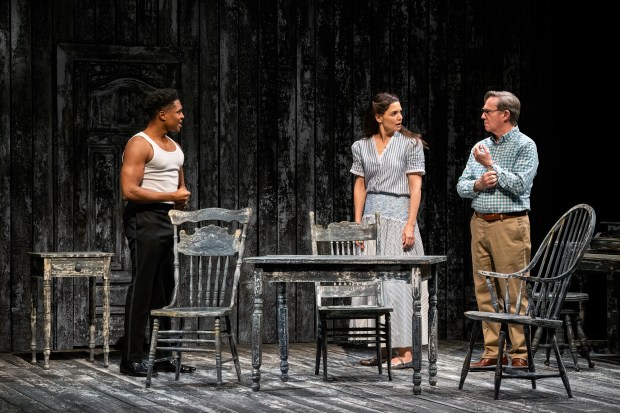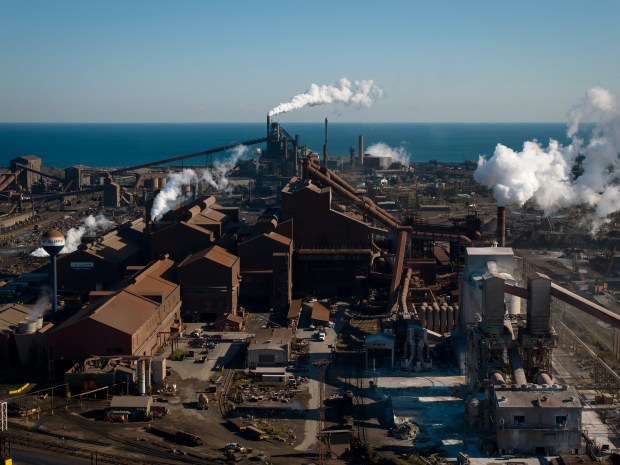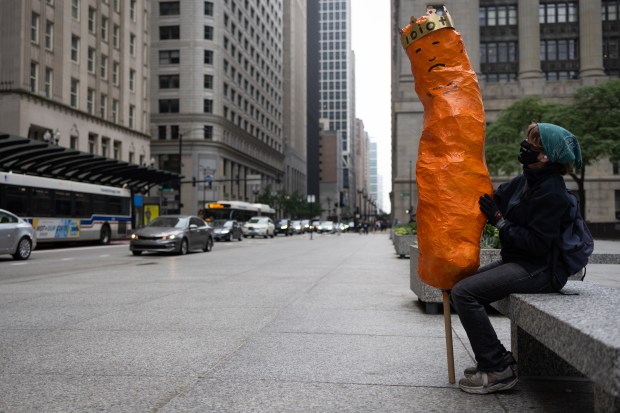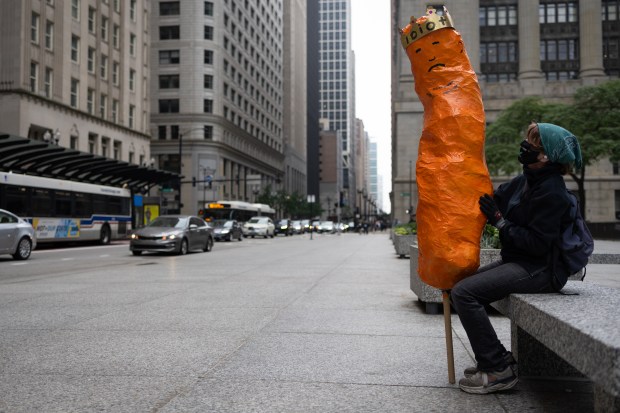NEW YORK — Most great plays are about death, but Thornton Wilder’s “Our Town” is the most likely American play of the 20th century to have you walking out of the theater determined to do things a little differently in your day-to-day existence — most importantly, to appreciate your loved ones while you still have them and remain above ground yourself.
No other play can do that quite like “Our Town,” which explains why this one is so constantly revived everywhere from middle-school auditoriums with fledgling Georges and Emilys to Broadway stages. Director Kenny Leon’s emotionally charged revival has opened at the Barrymore Theatre with an engaging if stylistically varied cast that includes Jim Parsons, Ephraim Sykes, Katie Holmes, Billy Eugene Jones, Zoey Deutch, Michelle Wilson and Richard Thomas, as well as a swift pace that boils a three-act play down to an intermission-less 105 minutes.
One of Leon’s distinctive gifts is his ability to take a canonical American play and make it feel like it was written about all Americans of all races instead of just a small town full of white people in New Hampshire, as actually was the case in 1938. That is the biggest achievement of this revival and that achievement is a very big deal, even though this production does not plumb the existential depths — nor the anguish and grief felt by the human heart — to the extent of director David Cromer’s famous 2008 Chicago and off-Broadway revival that cut through any and all sentimentality with a ruthless pair of shearing scissors.
Cromer’s probing production (an unforgettable masterwork, to my mind) shocked you into an awareness that you were doing everything wrong. Leon’s new Broadway take is far gentler, more understanding of human frailty and the need for comforting rituals, more focused on creating a Grover’s Corners that could be the intersection of anywhere in America.
Leon achieves this without changing a word of Wilder’s play. Nor does he threaten or lecture anybody or feel the need to distract attention from the universal focus of what, simply put, is an impassioned admonition to appreciate the brevity of our time on Earth, as opposed to the eternity that (presumably) follows our inevitable death. In Wilder’s mind, all humans are in the same boat and all make the same mistakes as a consequence of their inability to grasp the future. Leon understands this.
When he wrote the play, mostly while in Chicago, Wilder was borrowing from European experiments in metadrama. In the 1930s, it was weird to sit in a Broadway theater and hear a narrator talk directly to the audience and admit he was narrating a play. This God-like figure, now played by Parsons with an intriguing emotional intensity (quite different from the more laconic Cromer or the late Spalding Gray, who also played this role), could start and stop these scenes of American life at will. Now, that’s all more commonplace, but Parsons still drives this production very enigmatically, not least because he seems so able to switch from cynicism to existential despair. As a great “Our Town” narrator should be.
Of the remainder of the cast, it’s Jones who impresses the most, mostly because he adds so much emotional complexity to Doc Gibbs and that marries quite beautifully with Sykes, who plays his galumphing kiddo with real charm. If you’re older yourself, you tend to feel most here for the youth of Wilder’s fictional town, not all of whom make it through the perils of early middle age in the early 20th century. And even though it strives for no specific period, this production builds a really lovely vista of small-town life as it once was lived; you sometimes wish you had been born among these folks yourself. The likes of Thomas and Holmes are good company.
And yet once the play turns experimental and serious in Act 3, the production backs off from the darkest themes. Deutch (who is very effective at first) doesn’t deeply confront the pain that poor Emily has to face.
I’d say, in general, that this production builds a rich theatrical world, as designed simply but quite beautifully by Beowulf Boritt, but that sometimes demurs when characters really hit the wall of psychic terror that Wilder built for them, underneath all of that charm.
This “Our Town” is moving, emotionally stirring and truly compassionate. I suppose it depends how brutal you want your “Our Town” to be. I’m all for a warmer take that finds life brutal enough and offers some comfort with the constancy of human suffering.
At the Barrymore Theatre, 243 W. 47th St., New York; www.ourtownbroadway.com
Chris Jones is a Tribune critic.
cjones5@chicagotribune.com





